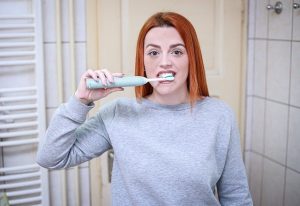You’ve probably never heard of a tongue crib before, but that doesn’t mean you should judge it without giving it a chance. The tongue crib works similarly to the traditional orthodontic braces used to correct bad bites, but it doesn’t use metal wires or brackets – instead, it uses suction and very thin plastic bars placed on the roof of your mouth. While there are no studies about how long the tongue crib would need to be worn in order to be effective, many dental professionals claim that it can correct misaligned bites in as little as four weeks.
Tons of people do it
All kinds of people speak with a tongue crib, even those that have no idea what it is. Some people do it all their lives and are only aware they’re doing it after someone has pointed it out to them. Many others can quit anytime they want but haven’t gotten around to quitting yet, because they haven’t seen any reason to do so. Only a very small minority of people are perfectly aware at all times when they’re doing something that may seem odd or unusual to other people. It’s likely that you don’t know whether you’re doing it right now unless someone has pointed it out to you previously. But if I told you about them, then maybe I’ve done just that: made things interesting and caused curiosity about something most people go through life without thinking much about.
Tongue cribs are effective
they’re used to teach babies how to use their tongues correctly. The baby pushes his or her tongue against a hard plastic bar on which little studs are attached. It doesn’t take long for your child to learn how to push his or her lips out and release them quickly so that they hit every stud in quick succession. It is also good because it helps their speech patterns come through, however some professionals think it could make their speech patterns worse as well. As with anything, moderation is key; there is no need to make your child wear it all day. Use them only when necessary, when your child will have consistent access to one, and when other forms of communication—like talking—have been exhausted.
Are tongue cribs comfortable?
Tongue cribs are small suction devices used to attach to your tongue. Tongue cribs have been used by doctors and dentists for years, but recently they’ve become available to consumers who can use them at home. These devices can be used as an alternative treatment for snoring or sleep apnea. The result is an open airway while sleeping that allows people to get a full night’s rest. If you suffer from snoring or sleep apnea, consider talking with your doctor about using a tongue crib in addition to taking other preventative measures like losing weight and avoiding alcohol before bedtime.
Does wearing a tongue crib hurt your teeth?
The good news is no! We’ve heard from people who have worn their tongue trays for years without problems. The only time we’ve seen teeth get damaged was when our patients didn’t follow instructions and ate something too hot. It may take some getting used to, but as long as you follow instructions, your teeth should be fine. Just make sure not to bite down on anything while wearing your tongue tray since it could cause some damage to your teeth and gums. If your gums get irritated, try brushing them with baking soda or hydrogen peroxide; our customers have found these two ingredients especially helpful in reducing irritation.
Do tongue trays hurt?
The kind of tongue plates used in orthodontics are rarely uncomfortable, but it’s important to remember that not all of them hurt. It really depends on how thick your lips are, for example. The best way to figure out if your dentist is putting you at risk for discomfort during orthodontic treatment is to ask before she applies any metal hardware. If she doesn’t give you a straight answer, or seems hesitant about your concerns, consider switching dentists and discussing your issue with him or her again at your next appointment. You should feel like everything has been thoroughly explained and addressed—not left hanging or open-ended—before heading into an orthodontic procedure that could potentially harm both your oral health and mental well-being.



